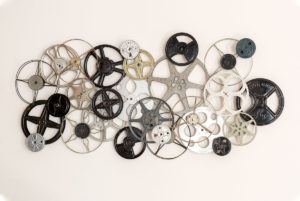When the dog bites, when the bee stings… and a dozen other things that aren’t your favorite… that’s what summer brings along with all the fun and sun. There’s little chance that you will be able to avoid all of the medical mishaps that come with summer. Some are more severe than others, but with some patience and a little know-how you can treat most of the issues on the spot effectively.
The key to success here is to know ahead of time what to do and to have a 1st aid kit prepared with all that you might need. We have compiled a list of some (but not ALL) summertime 1st aid situations and the quick remedy. We have also included a checklist for your first aid kit. Buy one and beef it up or just assemble the supplies you need in a handy plastic tote or used cookie tin.
savour… preparedness
SUMMER FIRST AID
Before you start:
We are not trained medical professionals. Use your best judgment. If you believe a situation or injury warrants medical attention, get to the doctor.
If any of the conditions below trigger what appears to be a severe reaction, call 911 immediately.
Bee stings
Start with removing the stinger. Use a dull straight edge (like the edge of a credit card) at a 45° angle to scrape the stinger AWAY from the skin. Wash immediately with soap and water. Try a paste of baking soda and water to add some relief from the sting and reduce swelling. Also, a cool compress will aid in reducing swelling.
Poison Ivy
Wash the affected areas and clothing immediately. The oils are tenacious and further exposure will only make matters worse. Apply over the counter topical antihistamine. Calamine lotion will help to reduce the itch.
Tick bites
Remove the tick at the base of the problem with a pair of tweezers. Do not just remove the end as the tick may burrow further into the skin. After removing all bug parts, wash thoroughly with soap and water. Monitor the patient for a few days to ensure there are no signs of Lyme disease.
Swimmer’s ear
Use an over-the-counter product to treat symptoms which may include redness and/or a milky white or yellow-green discharge from the ear. If symptoms persist for more than 24 hours, see a doctor.
Jellyfish stings
Get the patient out of the water and rinse the affected area with seawater. Apply vinegar repeatedly. Remove any remaining tentacles or stinging cells with a gloved hand or tweezers. Apply hydrocortisone cream to relieve itching and swelling. Administer a mild oral antihistamine. *Exception: if your sting is from a Box Jellyfish call 911 immediately. These stings are VERY dangerous and can be fatal.
Cuts and scrapes
Apply pressure with a clean dry cloth. Use mild soap and water to clean wound and affected area. Apply antibiotic and cover with gauze and medical tape or an adhesive bandage. Puncture wounds and cuts over an inch may require a doctor’s treatment. They are best suited to determine the need for stitches or a tetanus shot.
Nosebleeds
Have the patient sit straight up and lean forward. Pinch the nose at the fleshy part just below the bone. Hold it for 10 minutes. Do not release to see if the bleeding has stopped until the time has elapsed. If bleeding persists, repeat the process. If bleeding persists after the second attempt, see a doctor.
Heat exhaustion
Get the patient out of the sun immediately. Cool patient by sponging with cool water or placing in a cool, but not cold, bath. Cool cloths under the armpits may help the cooling process. Drinking cool, but not cold, liquids is also recommended. A visit to the doctor is recommended.
Sunburn
Treat the affected area with a wet cool compress. Aspirin can aid in pain relief and may reduce some inflammation. Apply aloe gel to soothe the burn. Drink plenty of water. If blisters form, see a doctor.
Snakebites
Get a description of the snake. Have the patient lie still with the wound lower than the heart. Cover the wound loosely with a sterile bandage. Unless you are well-informed about snakes and their characteristics and can safely make a decision to treat yourself, see a doctor.
Motion sickness
Stop the motion if possible. If on a boat or ship, look at the horizon. Take over the counter medications as directed to alleviate the problem.
What you should keep in your summer 1st aid kit:
- Aspirin, acetaminophen, ibuprofen
- Antihistamine
- Anti-nausea medication
- Baking soda
- Hydrocortisone cream
- Antibiotic cream
- Calamine lotion
- Aloe gel
- Swimmer’s ear drops
- Alcohol wipes and/or rubbing alcohol
- Medical tape
- Assorted bandages
- Gauze
- Wound closures
- Sterile gloves
- Instant cold pack
- Scissors
- Tweezers








